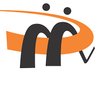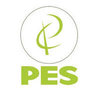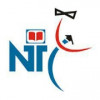208 IRIS SOLUTIONS Jobs

Dot Net - Senior Engineer
IRIS SOLUTIONS
posted 1mon ago
Job Role Insights
Fixed timing
Key skills for the job
Job Description
A .NET Engineer is responsible for designing, developing, and maintaining software applications using the .NET framework. They play a crucial role in creating scalable and efficient solutions that meet the business requirements. Here is a general job description for a .NET Engineer:
Responsibilities:Application Development: Design, develop, and maintain software applications using the .NET framework and related technologies. Collaborate with the team to define project requirements, user stories, and technical specifications.Coding and Testing: Write clean, maintainable, and efficient code following best practices and coding standards. Conduct thorough testing and debugging of applications to identify and resolve any issues or bugs.Software Architecture and Design: Participate in software architecture and design discussions, providing input and suggestions based on your expertise. Ensure adherence to design principles and software development methodologies.
Database Integration: Integrate software applications with databases using technologies such as Entity Framework or ADO.NET. Develop and optimize database schemas, queries, and stored procedures.API Development: Design and develop RESTful APIs (Application Programming Interfaces) for interacting with external systems or supporting client-server communication. Implement API endpoints, authentication mechanisms, and data exchange formats.User Interface Development: Develop user interfaces (UIs) using web technologies such as HTML, CSS, and JavaScript frameworks. Ensure responsive and user-friendly UIs that meet design and usability requirements.Troubleshooting and Issue Resolution: Investigate and resolve technical issues and bugs reported by users or identified during testing. Perform root cause analysis and implement appropriate solutions or workarounds.Version Control and Deployment: Use version control systems (e.g., Git) to manage source code and collaborate with the team. Participate in the deployment process, ensuring smooth and successful deployments to various environments.Collaboration and Communication: Collaborate effectively with cross-functional teams, including software engineers, testers, designers, and product owners, to deliver high-quality software solutions. Communicate project status, challenges, and solutions in a clear and concise manner.Continuous Learning and Improvement: Stay updated with the latest trends, tools, and best practices in .NET development. Continuously improve skills and knowledge through self-learning, training, or participation in relevant community events.Skills and Qualifications:Strong proficiency in C# programming language and the .NET framework.Experience with ASP.NET, MVC (Model-View-Controller), and web development technologies.Knowledge of web technologies such as HTML, CSS, and JavaScript frameworks (e.g., Angular, React, or Vue.js).Familiarity with database systems and SQL, including database design and optimization.Understanding of software development methodologies, design patterns, and best practices.Experience with version control systems, preferably Git.Ability to write efficient and optimized code, considering performance and scalability.Strong problem-solving and analytical skills.Excellent communication and collaboration skills.Ability to work in a fast-paced and dynamic environment.Relevant certifications such as Microsoft Certified: Azure Developer Associate or Microsoft Certified: .NET Developer are preferred.
Employment Type: Full Time, Permanent
Read full job descriptionPrepare for Senior Engineer roles with real interview advice
What people at IRIS SOLUTIONS are saying
Senior Engineer salary at IRIS SOLUTIONS
reported by
3
employees
with 7-8
years exp.

₹13
L/yr - ₹23.8
L/yr
82%
more
than the average Senior Engineer Salary in India
View more details
What IRIS SOLUTIONS employees are saying about work life
based on 8 employees
Strict timing
Monday to Friday
No travel
Day Shift
Similar Jobs for you
Share an Interview





























